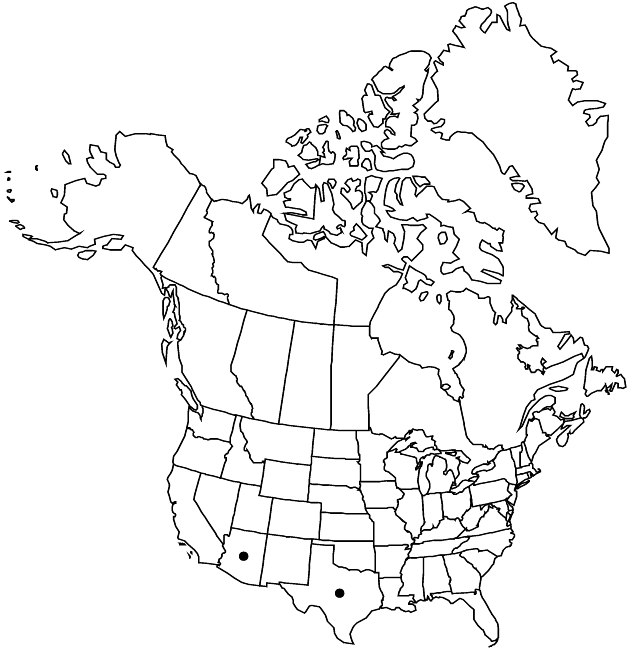Pseudognaphalium arizonicum
Opera Bot. 104: 147. 1991.
Annuals or perennials, 20–50 cm; taprooted. Stems loosely and densely woolly-tomentose (hairs usually with reddish or purplish cross walls), not glandular. Leaf blades linear-oblanceolate to linear-lanceolate, 2–6 cm × 2–7 mm, bases not clasping, decurrent 3–15(–20) mm, margins weakly and narrowly revolute, faces concolor to weakly bicolor, tomentose (hairs commonly with reddish or purplish cross walls), not glandular. Heads borne singly or in terminal glomerules or corymbiform arrays. Involucres turbinate-campanulate, 5–6 mm. Phyllaries in 4–5 series, usually brownish to tawny, rarely slightly rosy (opaque, shiny), ovate-lanceolate to lanceolate, glabrous. Pistillate florets (25–)30–49. Bisexual florets (1–)3–6. Cypselae ridged, papillate-roughened.
Phenology: Flowering Aug–Sep.
Habitat: Open woodlands and chaparral [wide ranging habitats in Mexico, agricultural land to oak and pine woodlands]
Elevation: 1600–2300 m
Distribution

Ariz., Tex., w Mexico.
Discussion
Pseudognaphalium arizonicum is superficially similar to P. stramineum in its narrow, concolor leaves; P. stramineum has non-decurrent leaves, light yellowish phyllaries, and more pistillate and bisexual florets.
Selected References
None.